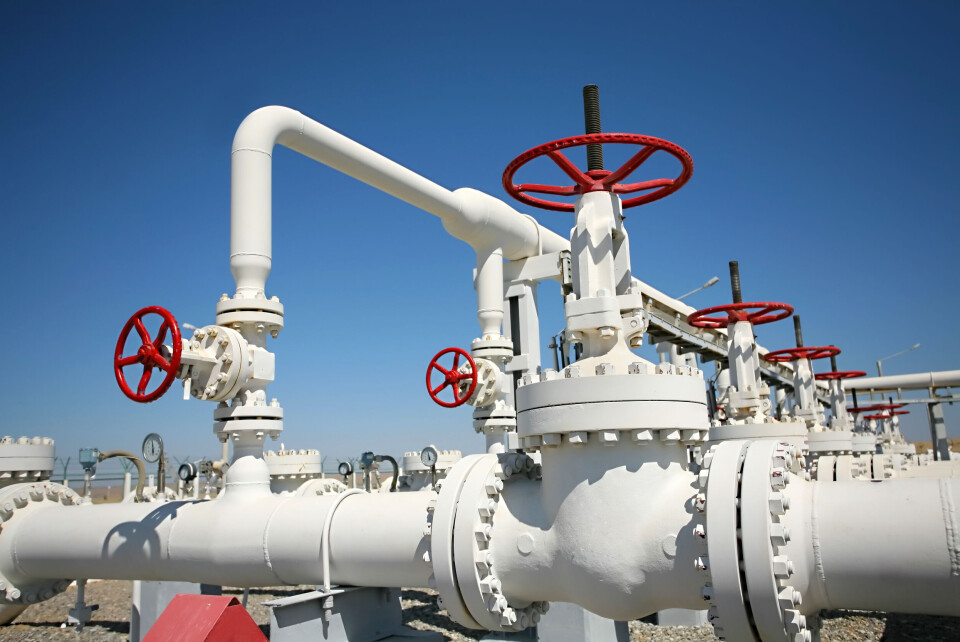-
Five departments on orange alert as heavy rain and floods continue in south of France
Conditions are expected to worsen through the afternoon
-
‘I saw flames’: Air France plane makes emergency landing in Lyon after technical fault
Flight carrying 173 passengers to Ajaccio diverted to Lyon-Saint-Exupéry on Saturday
-
Farmers’ protests ease but key motorway blockades hold firm in south-west France
Pressure on the government over its handling of cattle culls continues as Christmas nears despite a drop in protests
EU refuses to buy Russian gas with roubles: French suppliers diversify
The European Commission has warned member states that they must now prepare for Russian gas supply to be cut

The European Union has refused to pay for its Russian gas purchases in roubles, and member states must therefore prepare for supplies to be cut.
This is the warning that was issued by the European Commission and the French presidency of the Council of the European Union following an emergency meeting of member state energy ministers yesterday (May 2).
Russia demanded in March that “unfriendly” countries including EU member states should open two accounts with Gazprombank, one in a foreign currency and one in roubles. Payments would arrive in one account in euros or another currency and be converted into roubles to complete the payment.
Gazprom completely cut off supplies to Poland and Bulgaria when they refused to make rouble payments, but both countries have said that they have enough gas for now.
However, EU Energy Commissioner Kadri Simson stated yesterday that Moscow’s demands were “a unilateral, unjustified breach of existing contracts and it is legitimate to reject it.”
Ms Simson said that she did not know of any rouble accounts having been opened, adding that “payments are due for mid-May and the majority of companies will respect the terms of their contracts.”
Some “97% of contracts [signed by European companies] specify the payment currency, which is either euros or American dollars.”
French Ecological Transition Minister Barbara Pompili also stated that all EU member states “wish to respect contracts” and stick to EU guidelines.
Ms Simson warned: “We must prepare ourselves for a suspension of supply. There is no immediate risk, but we cannot replace the 150 billion m³ of gas [normally] bought from Russia [in a year] with other sources. It is not tenable.”
Ms Pompili also stressed that EU member states must “diversify their means of producing electricity and heating,” with her Polish counterpart Anna Moskwa adding that Europe must “get rid of its dependence on Russian fossil fuels.”
Member states may also be able to access gas coming from other countries such as the US or Norway.
The European Commission will issue more detailed guidance on what companies are allowed to do under EU sanctions against Russia.
French suppliers move to alternative raw materials
Although Russian gas supplies to France have not been cut as yet, some providers are already starting to search for alternatives to this fossil fuel as market prices remain high.
In Nantes, an eco-friendly energy company called Erena has begun burning wood and other widely available fuels to ensure its supply.
“Our mix of energy sources comes from the incineration of rubbish and wood: these are two sources of heat whose prices have remained stable at all times, compared to gas, which is extremely volatile,” said the network’s operations manager Mathilde Roux-Dressen.
This is also a more environmentally friendly approach, which will help the area to reach its goal of reducing CO2 emissions by 50% between now and 2030.
Some 12% of the city’s households, or 37,000 people, are supplied by Erena, which is able to offer a competitive tariff because of the lower price of its raw material.
Work is now underway to extend the network to Nantes’ Centre Hospitalier Universitaire and to Semitan, the company in charge of the city’s public transport.
How would a halt in Russian gas supply affect France?
If Russia does cut off gas supply to France, the first noticeable effect will be a rise in consumer prices leading up to next winter.
Supplies are bought in advance, so there would be no immediate gas shortage, but it may be difficult to top up French energy reserves over the summer in preparation for this winter.
Overall, around 40% of European gas is supplied by Russia, but this proportion varies from one country to the next.
Less than 20% of French gas comes from Russia, however, so it will be in a better position than countries including Italy and Germany, which are much more reliant on it (40-50%).
Related articles
France passes decree to prepare for cuts to Russian gas supply
France and Germany prepare for Russian gas cut: what will effects be?
Cutting off Russian gas: What is France’s view and what consequences?
























